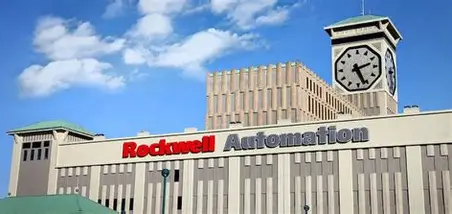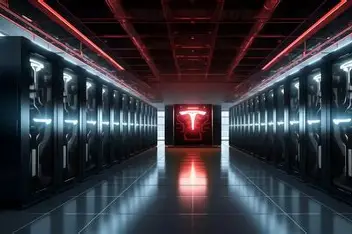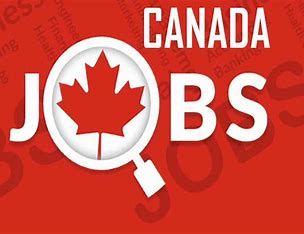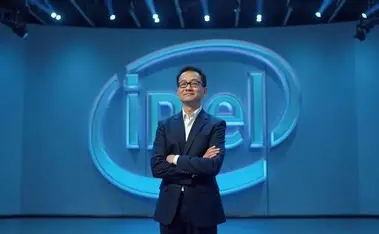4 Things Industry 4.0 – AI Chips, Mega Investments & Power Plays: This Week in Industry 4.0

Presented by

Happy August 11th, innovators and lifelong learners!
The smell of fresh notebooks and sharpened pencils is in the air, which can only mean one thing—kids are heading back to school, and parents everywhere are rediscovering what quiet sounds like. But while the little ones are cracking open textbooks, the tech and manufacturing world is busy rewriting its own curriculum. New investments, bold pivots, and big shake-ups are all on the syllabus this week, reminding us that whether you’re 8 or 80, there’s always something new to learn.
In this week’s Learning Lens, we’ll hand you the cheat sheet on speeding up your dev workflow, and in Byte-Sized Brilliance, we’ll remind you just how far we’ve come since the days when a gigabyte cost more than your car.
Grab your coffee—class is in session.
Rockwell Automates Growth with $2 Billion U.S. Investment

Rockwell Automation announced plans to invest $2 billion over the next five years into its U.S. manufacturing, workforce, and digital infrastructure—focusing on its operations in Wisconsin and Ohio. The capital infusion will support productivity through automation upgrades, hiring of talent, and deployment of an AI-driven business system. While some will go toward traditional “brick-and-mortar” facilities, the emphasis lies on improving margins, expanding global reach, and reinforcing long-term competitiveness. More specifics on milestones and impact are expected at Rockwell’s Investor Day in November.
Tesla Waves Off Dojo Supercomputer to Double Down on AI Chips

Tesla has officially shelved its in‑house Dojo supercomputer project—the ambitious platform once envisioned as the backbone for training its Full Self‑Driving (FSD) and robotics AI systems. Led by project head Peter Bannon, the team has been disbanded, with around 20 members departing to launch a startup called DensityAI. Remaining staff are being reassigned to other compute and data initiatives within the company. CEO Elon Musk explained the pivot by stating it no longer made sense to split resources across two AI chip architectures. Instead, Tesla will now focus exclusively on its NextGen AI5 and AI6 chips while leaning heavily on external chip providers: Samsung (via a $16.5 billion deal), Nvidia, and AMD.
Canada Job Market Stumbles as Tariffs Bite

Canada shed 40,800 jobs in July—reversing June’s gain—and saw its employment rate fall to 60.7%, the lowest in eight months, while the unemployment rate remained at 6.9%, a multi-year high. The brunt of the losses hit the 15–24 age group, with youth unemployment soaring to 14.6% and their employment rate plunging to 53.6%, the lowest since 1998 outside pandemic years. Job cuts were widespread—manufacturing (especially steel, aluminum, and auto-linked sectors), information, culture and recreation, construction, and business services all declined, while transportation and warehousing added jobs. Although permanent employees continue to receive wage increases (up 3.5%, to C$37.66/hour), manufacturing’s slowdown has rattled recovery forecasts.
Sponsor Message

Modernize Your Factory Without the Downtime Drama
Deploying, updating, and upgrading software across OT and IT shouldn’t feel like gambling with production uptime.
Portainer makes it easy:
- Deploy anywhere in minutes — edge, cloud, or on-prem
- Push updates without breaking production
- Upgrade with confidence — risk mitigation built in
- Manage it all from one visual, intuitive control plane
No overcomplication. No unnecessary tools. Just the fastest path to reliable, scalable container management for manufacturing.
📘 Read the guide: You Don’t Modernize a Factory Overnight — a practical playbook for adopting Industry 4.0 at the edge.
🎥 Watch the video: How Portainer Works for Industry 4.0
🌐 Explore Portainer: https://www.portainer.io
Intel CEO Reassures Amid Leadership Scrutiny, Keeps Focus on Strategy Shift

Intel CEO Lip-Bu Tan addressed employees after calls for his resignation, affirming that the company’s multi-year turnaround plan remains on track. Tan reiterated Intel’s commitment to U.S. manufacturing, AI innovation, and advanced process technology, emphasizing that recent restructuring—workforce reductions, AI chip development prioritization, and a spin-off of the Network & Edge division—is critical to restoring competitiveness. Intel continues to invest in its 18A and 14A nodes only with secured customer commitments, aligning resources with high-value markets such as AI accelerators, advanced packaging, and secure domestic semiconductor production.
Industry 4.0 Highlights
Big Tech’s Growing Footprint Is Straining Your Power Bill—and States Are Waking Up
Electricity bills are climbing across the U.S.—and data centers powering AI and cloud services are a major culprit. These energy-hungry facilities are putting pressure on aging grids, driving up infrastructure costs, and shifting much of the burden onto ratepayers. In the Mid-Atlantic, data centers account for an estimated 70% of a $9.3 billion spike in electricity costs. In response, states like Pennsylvania, Oregon, and New Jersey are exploring policy fixes—from special tariffs to requiring data centers to source their own power—to avoid making the average household bear tech’s energy expense.
GitHub CEO to Step Down as Platform Moves Deeper into Microsoft’s AI Fold
GitHub CEO Thomas Dohmke announced he will step down by the end of 2025 to return to his entrepreneurial roots, marking the end of his nearly four-year leadership. During his tenure, he drove major initiatives—including AI integration via Copilot, FedRAMP certification, and global expansion—and leaves the platform in its strongest shape to date, with over 1 billion repositories and 150 million developers. Following his exit, GitHub will be fully integrated into Microsoft’s CoreAI organization under Jay Parikh, dissolving its independent leadership structure and aligning it more closely with Microsoft's broader AI strategy.
Learning Lens

Accelerating Monorepo Efficiency with Turborepo
Turborepo, developed by Vercel, is a high-performance build system tailored for JavaScript and TypeScript monorepos. It significantly speeds up development workflows through smart, incremental builds, parallel task execution, and advanced caching—especially with zero‑config remote caching via Vercel. These improvements slash build times by skipping redundant work, making it ideal for large-scale or enterprise-grade codebases. Thanks to content-aware hashing, remote artifact sharing, and streamlined CI integration, Turborepo helps teams ship faster, with less infrastructure overhead and more developer focus.
👉 Learn more: https://github.com/vercel/turborepo
Byte-Sized Brilliance
The First 1GB Hard Drive Cost as Much as a Car
In 1980, IBM released the first 1-gigabyte hard drive. It was the size of a refrigerator, weighed over 500 pounds, and carried a price tag of $40,000—about the cost of a new sedan at the time. Today, you can buy a 1TB drive—1,000 times the storage—for less than the price of dinner for two.
We Value your Feedback.
Click on the link below to provide us with your thoughts.
|
|
|
|
|
|



Responses